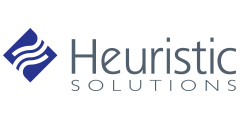Protecting the public from “bad apples” — practitioners, licensed or otherwise, whose conduct puts constituents at risk — is a core function of any licensing or regulatory board. Pun intended.
All wordplay aside, the fairness, efficiency, and speed with which a board resolves complaints affects public safety and trust, which is why well-organized complaints and investigations processes are essential to controlling the quality of a professional credential.
What is the typical process around complaints and investigations management?
A license investigation consists of several processes. Though they are all interdependent, each is also distinct.
Public Complaints Submission and Review
The complaints process is the first, most public-facing stage of complaint management. It is paramount for this process to be “user friendly:” Easy to find, easy to use. The ideal complaints process is clear and comprehensive, inspiring confidence in resolution. It also provides a board with everything needed to determine a complaint’s baseline validity and merit. It can be helpful to maintain a public directory of searchable licensee information, so a member of the public can include that information in their complaint.
License Investigations
Once a complaint is deemed to have merit, it enters a new process: investigation. This process must be thorough, fair, and able to withstand many layers and levels of review. Best practices around procedure are often defined by administrative law.
Investigations involve many parties, including board staff, the complainant, and the license holder. There are also many elements to a successful investigation, which means managing many moving parts and resources. They can get complex, and quickly.
For example, from paperwork to photographs, screenshots to receipts, any comprehensive investigation involves collecting and analyzing evidence and supporting documentation. To corroborate or contextualize this documentation requires witness statements. In order to gather statements and evidence, investigators may need to conduct interviews, inspections, or site visits. Reports must be written and submitted, and all correspondence must be recorded and tracked. Procedures must be set and followed to the letter in order to hold up in legal proceedings.
When a Board Takes Action on a License
Depending on the outcome of an investigation, a ruling may include required action on a license. A new process will begin around ensuring those actions are taken.
For example, in the event of license suspension or revocation, the board must alert the licensee, the complainant, and potentially the larger public.
A ruling may include a step-by-step plan for license holders to achieve compliance and keep their licenses. These steps might include taking an ethics course and paying a fee. Responsibility to ensure their completion often lies with the board. Remember that public-facing directory of searchable licensee information? There should be an easy way to update that directory if the status of a license changes.
What makes complaint management challenging for licensing organizations?
When it comes to these processes, the bar for success is high. Organizations are expected to handle all complaints with integrity, efficiency, and legal compliance. For the process to run fairly and efficiently, being able to organize evidence around a specific violation is crucial.
The sheer amount of steps, data, and oversight needed to organize that evidence can be daunting. So can coordinating all the necessary communication and collaboration. Review and approval happen at each step and in a specific sequence, so there are many possibilities for breakdown and delay. Especially in the absence of direct, in-person support, complex, paper-based processes can fall apart. The recent pandemic and its effects on the workplace only make that more clear.
How can technology improve complaints and investigations?
Implementing digital workflows will centralize, streamline, and organize license investigations, especially cases that might otherwise pass across many desks and through many hands.
A digital workflow consolidates complaint submission and review. It can automate an initial step to determine validity without involving staff resources. It can help organize the many various types of evidence, either for a single, specific violation or across multiple violations, to tell a story the board can understand and address. It can also automate and log all necessary communications to involved parties. Keeping meticulous records in compliance with administrative law becomes simplified. So does managing documentation and data.
What are the key metrics for successful complaints and investigations?
A big indicator of a well-run licensing board is the allocation of sufficient staff resources to consumer complaints and investigations. Reporting out on activity in this area is essential for effectively allocating resources.
Within a given time frame, the number of submitted complaints and ensuing investigations, the associated board actions, and the time it takes to resolve investigations are all data points that board management will need. Some of this data is meant for internal administrative use only, but the public may also have a right to know. A board’s demonstration of their attention to investigating complaints can be expressed most authentically through these metrics.
A digital workflow takes the guesswork out of this reporting, helping boards minimize errors and make better decisions more quickly.
LearningBuilder for Complaints, Investigations, and License Actions
When it comes to complaints and investigations, a digital workflow can make a huge difference. LearningBuilder’s customizable, low-code workflow engine powers digital workflows that are tailored to specific organizational needs, but flexible as those needs evolve. With LearningBuilder’s suite of features for licensure, regulation, and compliance, you can simplify, centralize, and automate your complaints and investigations process, leading your team to success.
If your licensing or regulatory board is pursuing solutions for complaint management and license investigations, LearningBuilder may be the right platform for you. Schedule a demo to learn more more about how we help organizations like yours improve their licensing operations, support license holders, and protect the public.




